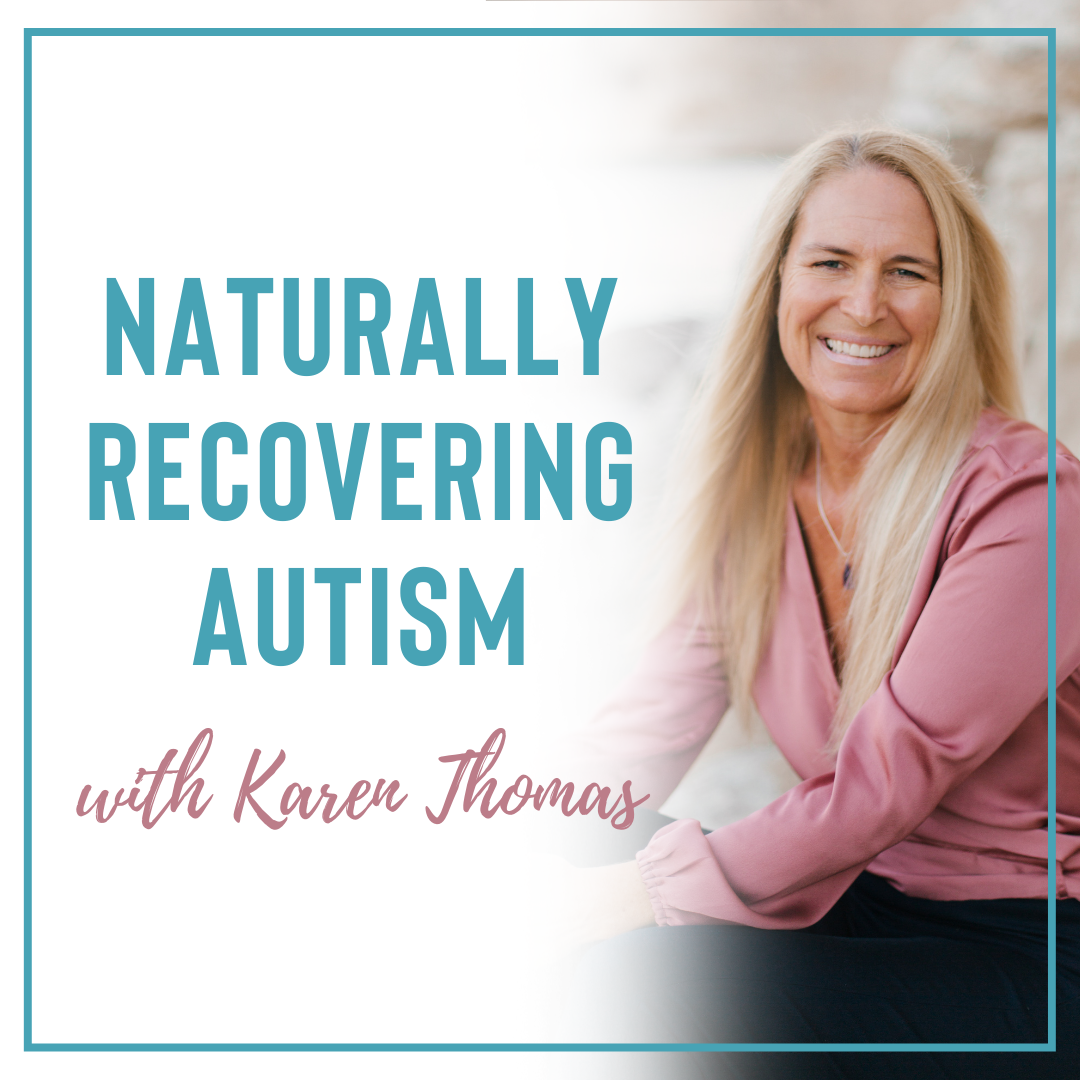

176.1K
Downloads
241
Episodes
Inspiring parents with natural solutions to create the most fulfilling, healthy and productive life possible for their children with autism. Empowering Parents with the Resources to Naturally Recover Autism from a mom who has done it. Having once been told her son could not recover from his symptoms of autism Karen Thomas now shares what she has learned through over a decade of personal research and experience that has brought her own son to recovery. Her background as a Craniosacral Therapist allowed her the awareness that the brain could heal if given the right support. Learn how you can allow your child a clear path for a happier and more fulfilling life with improved communication, better sleep, improved social abilities, and overall improved health. Get your FREE GUIDE to the top 7 foods to eliminate from your child's diet for better sleep, calmer moods, improved focus and speech at, NaturallyRecoveringAutism.com /7foods For more resources go to, NaturallyRecoveringAutism.com
Episodes
![Fasting Risks For Autism and What To Do Instead [Podcast Episode #221]](https://pbcdn1.podbean.com/imglogo/ep-logo/pbblog1796738/Episode_Naturally_Recovering_Autismahvu2_300x300.jpg)
Wednesday May 28, 2025
Fasting Risks For Autism and What To Do Instead [Podcast Episode #221]
Wednesday May 28, 2025
Wednesday May 28, 2025
While intermittent fasting may have beneficial effects on various autoimmune diseases, fasting is not right for everyone.
Intermittent fasting can be detrimental for people with autoimmune issues because it can potentially exacerbate their condition by putting additional stress on the immune system, which is already dysregulated in autoimmune diseases, potentially leading to increased inflammation and flare-ups due to the body’s tendency to attack its own tissues during fasting periods.
Why intermittent fasting may not be right for someone with autism:
Immune system disruption:
Fasting can cause fluctuations in immune cell activity, potentially leading to an overactive immune response in individuals with autoimmune diseases where the body is already attacking its own tissues. PANS is an autoimmune attack on the brain and it is very common in children with autism. You will see a sudden onset of OCD, clinginess, and fearfulness.
Increased inflammation:
While some research suggests intermittent fasting might reduce inflammation in healthy individuals, in autoimmune conditions, it could trigger increased inflammatory markers due to the body’s altered immune response.
Stress on the body:
The stress of fasting can further exacerbate autoimmune symptoms. If your immune system is fragile and you’re constantly having flare-ups, you might want to avoid fasting until your body is stronger.
What to do instead:
Focus on a balanced, healthy diet with controlled portion sizes, regular exercise, and mindful eating habits to achieve similar health benefits, prioritizing nutrient-dense foods and limiting processed options; essentially, managing your overall calorie intake without strict fasting windows.
Ketogenic Diets are popular for this reason. A ketogenic diet primarily consists of high-fats, moderate-proteins, and very-low-carbohydrates. The dietary macronutrients are divided into approximately 55% to 60% fat, 30% to 35% protein and 5% to 10%carbohydrates.
In our episode Healthy Carbs, Candida Control, and What You Can Do To Soothe Autism Symptoms [Podcast Episode #210] we discussed how low-carb diets can be potentially sleep disruptive and anxiety provoking if candida overgrowth is still strong and candida is eating up all of the glucose our brain needs. This is very common in sleep disorders.
I discuss this in detail in my podcast episode # 133, How To Improve Sleep Tied To Candida Induced Hypoglycemia. ...
Click Here or Click the link below for more details!
No comments yet. Be the first to say something!